Monday Feb 16, 2026
Monday Feb 16, 2026
Wednesday, 22 December 2021 00:00 - - {{hitsCtrl.values.hits}}
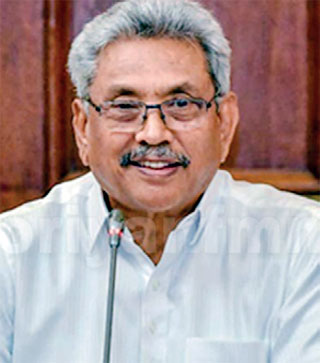
President Gotabaya Rajapaksa

Prime Minister Mahinda Rajapaksa
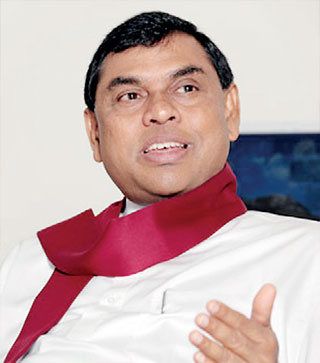
Finance Minister Basil Rajapaksa

SJB Leader Sajith Premadasa
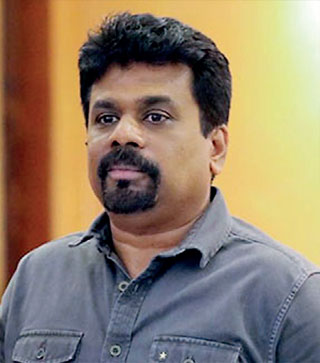
JVP Leader Anura Kumara Dissanayake
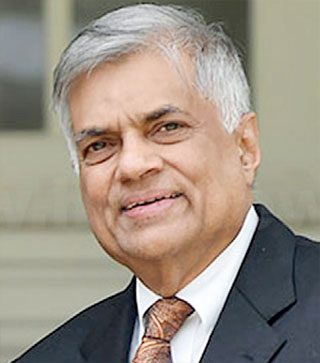
UNP Leader Ranil Wickremesinghe
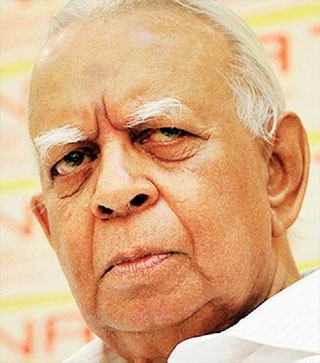
TNA Leader R. Sampanthan
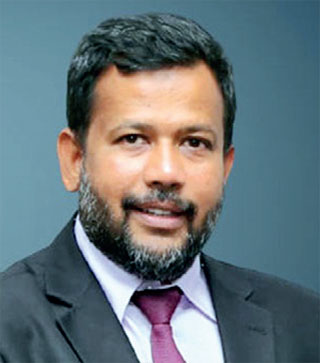
ACMC Leader Rishad Bathuideen

SLMC Leader Rauff Hakeem
|
“Depend upon it, Sir, when a man knows he is to be hanged in a fortnight, it concentrates his mind wonderfully”
– Samuel Johnson –
The crisis
The people of this country are facing hanging in a fortnight, and their minds are ripe for concentration. They are dealing with shortages and skyrocketing prices of essentials. Core inflation, which reflects the underlying inflation by excluding volatile items of food, energy and transport groups in the economy as measured by the Year-on-Year (YOY) change based on NCPI for the month of October 2021, increased to 7.2% from 4.8% reported in month of September 2021.
dealing with shortages and skyrocketing prices of essentials. Core inflation, which reflects the underlying inflation by excluding volatile items of food, energy and transport groups in the economy as measured by the Year-on-Year (YOY) change based on NCPI for the month of October 2021, increased to 7.2% from 4.8% reported in month of September 2021.
The Department of Census and Statistics said the YOY inflation of the food group increased to 11.7% in October 2021 from 10% in September 2021 and YOY inflation of the non-food group increased to 5.4% in October 2021 from 3% in September 2021.
People see the Government is not in control. Fertiliser imports were banned ostensibly because we wanted to become the first 100% organic country in the world, but really to save foreign exchange. But the country ends up paying $ 6.7 million for harmful imported fertiliser we cannot use.
We are no longer talking about a future crisis. We are now in its midst, though not its depths. The hope that the 2022 Budget would give the right signals has evaporated. It offered no solutions to the twin deficits that have given rise to unprecedented shortages and black markets. More than 50% of the new revenue proposed is one-off. What happens in 2023? The expenditure cuts are mostly symbolic: five litres cut from fuel allowances? Are we expecting the financial markets to take these measures seriously?
Perhaps the problem is that those in charge are unable to grasp the scale of the crisis.
This is not one bad year; this will drag on. Simple arithmetic shows that we are incapable for paying our debts ($ 5 billion/year on average) and importing what is necessary for the normal functioning of the economy. The current remedial measures are not only worsening people’s living conditions; they are harming industries producing for export as well for the domestic market; they will dissuade new investors from coming in and are driving out those already here. They are killing MSMEs.
The parallel is from almost a hundred years ago. According to Dr. M.R.P. Salgado’s PhD research, the per capita GDP of Sri Lanka was $ 80 in 1926; by 1932, it was down to $ 33. The 3.6% contraction of the economy in 2020 is just a number to the powers that be. With the highest level of inequality in South Asia (slightly above that for China; and slightly below the US) and with minimal compensation paid for the losses caused by lockdowns, those in the lower-income deciles took a hit that cannot be easily recovered from. Their savings are depleted, they are in debt. The fertiliser-pesticide fiasco has damaged the small producers in agriculture, damage that will continue beyond 2021. A large proportion our population is unable to withstand more shocks.
Why no action?
We cannot get out of the crisis without taking some bitter medicine. It is increasingly becoming clear that debt restructuring in the context of an IMF program is necessary. Unlike in previous IMF programs, we cannot afford to abandon discipline at the earliest opportunity. Unless we own the reforms, we will keep falling back.
The Government’s unwillingness to take the medicine of debt restructuring within the context of an IMF program is caused by their fear of having to take the blame for what they consider to be hard measures. Unless we have a truly national government with a common agreed upon minimum program, where the opposition parties also have meaningful roles and there are constraints on the blame game, it’s possible that we will continue to blunder on, and end up like Lebanon.
There is no precedent for a national government in Sri Lanka. Our hopes that the parties would come together in the aftermath of the tsunami ended with the ceremony itself. Previous attempts by parties with different philosophies to work together—the Parivasa Aanduva in 2000 and SLFP-UNP cohabitation in 2001-2003—failed. The obvious precedent is the national government formed in the United Kingdom during the Second World War. The present crisis poses similar existential threat.
Where we will end up
If we do not take the right decisions now, we will end up like Lebanon which is mired in crisis because the political class could not set aside their differences to take hard decisions to save the economy.
Since the last quarter of 2019, the Lebanese pound has lost 90% of its value, and annual inflation in 2020 was 84.9%. According to government statistics as of June 2021, prices of consumer goods had nearly quadrupled over the previous two years. All but the wealthiest Lebanese have cut protein from their diets and wait in long lines to fuel their cars, and suffer through extended power cuts. The price of electricity is nearly 10 times what it was before the crisis began. Those with generators are increasingly unable to pay for the fuel.
Across Lebanon, fuel shortages have led to long lines at gas stations, where drivers wait for hours to buy only a few litres, or none if the station runs out. The supply of medicines has become unreliable. Pain killers and blood pressure medications are difficult to find. Other products have disappeared altogether, such as drugs to treat depression. Insulin is hard to find. People pay seven times as much as they paid two years for baby formula.
The crisis could do lasting damage to three sectors that distinguished Lebanon. In a country once billed as the Switzerland of the Middle East, the banks are largely insolvent. Education has suffered a blow as teachers and professors seek better opportunities abroad. Health care has deteriorated as reduced salaries have driven out doctors and nurses. The emergency ward at the American University of Beirut Medical Center, among the country’s best, has gone from 12 to seven physicians, and lost more than half of its 65 nurses since July 2020.
The outcome of Lebanon style devastation is difficult to predict. Mustafa Allouch, the deputy head of a prominent political party, said that he feared that the political system was incapable of addressing the country’s problems. His greatest fear was “blind violence” born out of desperation and rage: “Looting, shooting, assaults on homes and small shops.” He said this four months ago. In October, the Army was needed to quell street violence that took six lives and wounded at least 30 people.
Essential preconditions
It is easy to say we should agree on a common program of recovery and work together for two years. What is difficult is getting agreement on the common program and ensuring that the failures of 2000-2003 are not repeated. The enormous power wielded by the President in our Constitutional system does not lend itself to productive collaboration among parties represented in Parliament. The 19th Amendment was most effective antidote to this autocratic power as was demonstrated in 2018.
Therefore, the restoration of the 19th Amendment, with some pragmatic accommodations, is an absolute precondition for the joint effort to overcome the economic crisis we find ourselves in. Not only must the 20th Amendment be rolled back but the ill-considered appointments made to Independent Commissions at the sole discretion of one individual must be rescinded, and fresh appointments made through the Constitutional Council. The independent and professional functioning of the Central Bank is critical to the negotiations that have to be conducted and the implementation to follow. We cannot again be guinea pigs for experiments with Modern Monetary Theory and the like.
Given the need to democratise the media space in this country to build the trust of the people in the common minimum program, it is also necessary to fast track media reforms by introducing new legislation to establish an independent commission to regulate all users of spectrum and media enterprises. This will also allow the complete reform of issuance of spectrum and the realisation of the untapped value therein. The long-delayed Provincial Council elections must be conducted quickly under the old law and gotten out of the way so that they may perform their roles and the Central Government can focus on economic recovery.
Under the 20th Amendment, the President can dissolve Parliament at his sole discretion any time after February 2023. It is necessary for the interim administration by the national government continue without interruption for at least two years. This further highlights the need to get rid of the 20th Amendment. In 2024, after two years, the national government can be dissolved, and the parties can go back to politics as usual. By that time, we should have made the necessary structural changes to address the perennial twin deficits and thereby have successfully restructured our debt.
Elements of a minimum program
The common minimum program will of course have to be negotiated, but below are some examples of actions an interim national government can take that will reduce the twin deficits whilst creating the confidence essential for a debt restructuring program.
We need a headline-grabbing action that will credibly communicate the intentions of the national government. Divesting SriLankan Airlines on the same lines as Air India would be ideal. The avoided losses to Treasury would be in the range of Rs. 99 million a day, the average per day loss incurred by the airline in 2018, 2019 and 2020. In the same way that the Government of India divested 100% of ownership and retained a considerable portion of the accumulated debt, we too will have to give the buyer total control and take responsibility for some of the accumulated losses. All state-owned business enterprises will get the message that the government will no longer cover losses (as stated in the 2022 Budget Speech); Treasury (and tax payers) will be protected from never ending demands; and the holders of our debt will be given a clear message that we are getting our house in order.
Formula-based pricing must be adopted for imported petroleum products, including cooking gas. This is an essential element of reducing the twin deficits. It will, however, ripple through the economy with increases in electricity and water prices. All these essential utility services must be brought under formal utility regulation and priced in ways that reflect actual costs. The poor who will be affected by tariff increases must be assisted through targeted subsidies dispensed as part of the social safety net described below.
The ongoing consolidation of multiple overlapping welfare schemes under the Welfare Benefits Board and its beneficiary database must be fast-tracked. Because the depreciation of the rupee will continue for some time resulting in increasing prices for essential items and because utility prices will be volatile, it is necessary to mobilise funds from the ongoing World Bank funded Social Safety Nets Project and develop a mechanism to transfer assistance in targeted manner. High priority to the implementation of a social safety net will help manage the pain. If in the process, the national government can shut down some superfluous entities such as the Samurdhi Department (which consumes 25% of the total allocation for the scheme), it will send a powerful message to debt holders.
|
We must increase exports urgently. It is not necessary to start from scratch as political leaders seem to think. A broadly consulted National Export Strategy (NES) exists. The industry committees responsible for oversight are in place. Prabash Subasinghe, the Chairman of the Export Development Board appointed by the President in 2019, stated correctly that we should simply get on with the NES without reinventing the wheel. Each NES committee should be mandated to work with a team of counterparts within government to identify barriers faced by exporters, ranging from licenses for essential inputs to banking regulations that keep changing. A high-powered committee will examine these recommendations and take immediate remedial action.
Market access is critical in the post-pandemic environment where all economies are under stress and protectionist impulses are rising. Fast tracking the completion of Indian and Chinese bilateral trade agreements that have been under negotiation is the first step in gaining market access in the current environment.
The Indian and Chinese agreements need to be prioritised because of their current and future importance. The next priority should be given to paving the way to join the Regional Comprehensive Economic Partnership (RCEP) that comes into effect 1 January 2022 giving further advantages to competitors in countries such as Viet Nam. If trade agreements are negotiated to ensure market access and provide certainty, it should be possible to attract FDI.